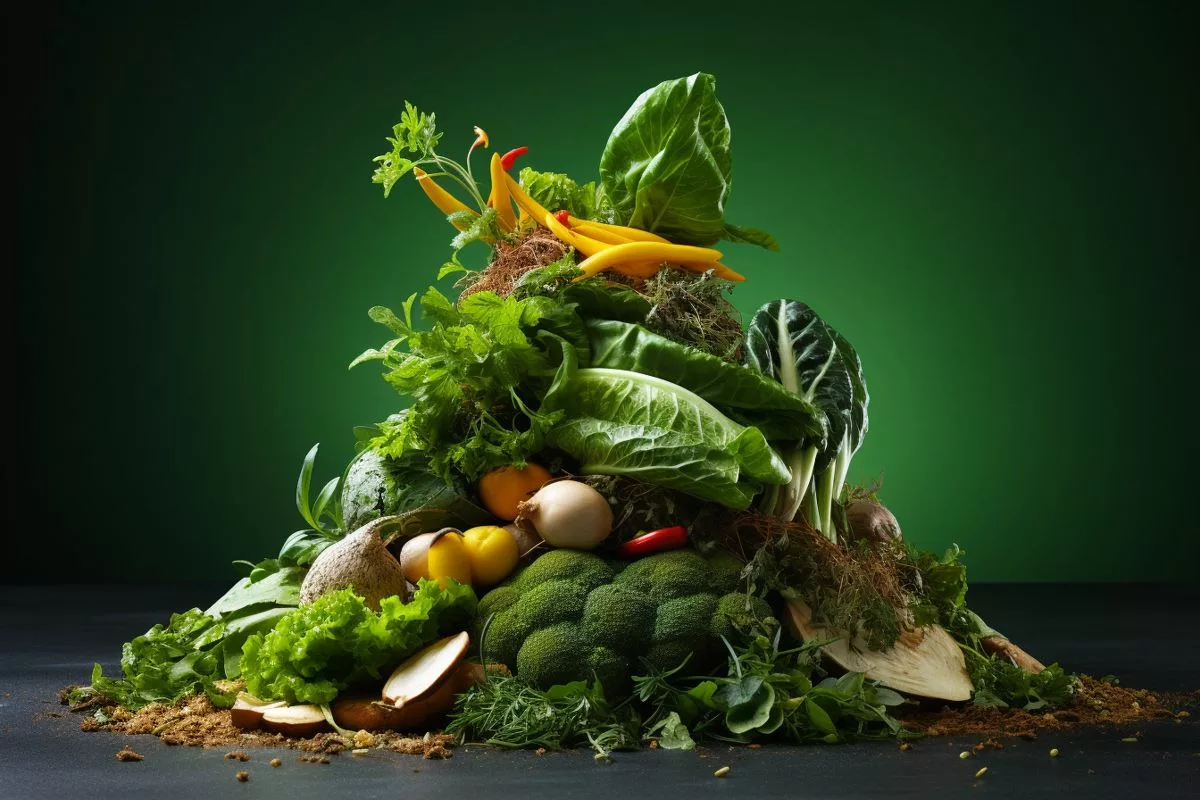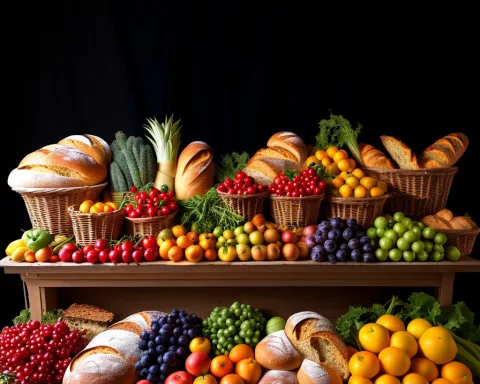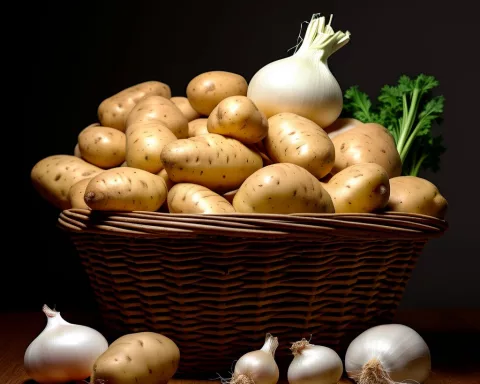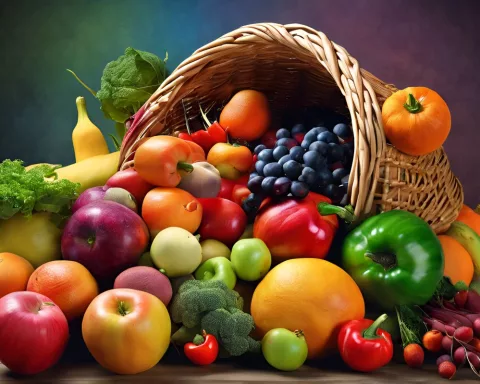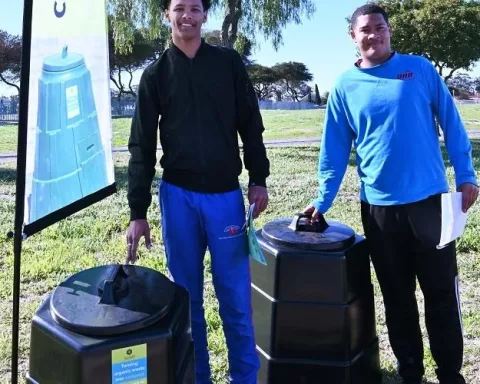South Africa is facing a food insecurity crisis due to high food prices and waste. One-third of all food produced in the country is wasted, leading to the loss of more than 10 million tons of consumable food annually. Simplifying date labels and potentially extending “best before” dates can reduce food waste and improve food security. Organizations like FoodForward SA are working to redirect surplus food to vulnerable segments of society, contributing to a more sustainable and fair food system for all citizens.
What is the influence of labeling guidelines on food waste in South Africa?
A primary cause for the enormous amount of food waste in South Africa is the widespread uncertainty regarding the interpretation of “best before” dates on food products. Reassessing and revising labeling guidelines offers a feasible solution for reducing food waste and ensuring that a significant portion of edible food does not end up in landfills. By simplifying date labels and potentially extending “best before” dates, both retailers and consumers can make better-informed decisions regarding food safety and consumption, ultimately resulting in decreased waste and improved food security.
In present-day South Africa, the urgent matter of increasing food prices, intensified by soaring interest rates and escalating living expenses, has left a substantial proportion of the population famished and battling to make ends meet. Considering that one-third of all food produced in the country is wasted at some point in the value chain, it is crucial to investigate creative ways to decrease food waste, tackle malnutrition, and enhance food security. Amidst geopolitical instability, South African households are experiencing the burden as food prices skyrocket across all categories – from basic essentials like bread, milk, and eggs to more specialized food items. This article discusses the possible advantages of revising food labeling guidelines and the role of organizations like FoodForward SA in fighting food waste and nurturing a more sustainable food system.
The Influence of Labeling Guidelines on Food Waste
A primary cause for the enormous amount of food waste in South Africa is the widespread uncertainty regarding the interpretation of “best before” dates on food products. Contrary to common belief, these dates do not serve as absolute markers of food safety; instead, they function as suggestions provided by manufacturers to indicate optimal quality and flavor. This prevalent misconception, however, leads to the annual loss and waste of more than 10 million tons of completely consumable food throughout the nation’s food system.
Reassessing and revising labeling guidelines offers a feasible solution for reducing food waste and ensuring that a significant portion of edible food does not end up in landfills. By simplifying date labels and potentially extending “best before” dates, both retailers and consumers can make better-informed decisions regarding food safety and consumption, ultimately resulting in decreased waste and improved food security.
FoodForward SA and the Redirection of Surplus Food
As food insecurity becomes progressively more widespread, organizations like FoodForward SA have surfaced as vital contributors in the pursuit of a fairer and more sustainable food system. Acknowledging that surplus food is an unfortunate yet unavoidable component of the food value chain, FoodForward SA, in collaboration with its social partners, champions a proactive approach to addressing food insecurity in the country. This involves identifying and redirecting high-quality, consumable surplus food to those who need it most.
By cultivating partnerships with various stakeholders – from producers and retailers to non-governmental organizations and government agencies – FoodForward SA strives to enable the redistribution of surplus food promptly and effectively. In doing so, the organization not only helps to alleviate the immediate problem of hunger but also contributes to the long-term objective of sustainability by lessening the environmental impact of food waste.
Pursuing a More Sustainable and Fair Food System
In the face of growing challenges, it is imperative for South Africa to introduce strategies that tackle both food waste and food insecurity. This involves reexamining and modernizing labeling guidelines to minimize confusion and encourage food donations, as well as backing organizations like FoodForward SA in their endeavors to redistribute surplus food to the most vulnerable segments of society.
By adopting a comprehensive approach that considers the entire food value chain – from production and distribution to consumption and disposal – South Africa can work towards a more sustainable and fair food system that benefits all citizens. This, in turn, could act as a model for other countries dealing with similar issues, showcasing the potential of inventive thinking and cooperative action in addressing the pressing challenges of our era.
1. What is the food insecurity crisis in South Africa?
South Africa is facing a food insecurity crisis due to high food prices and waste. One-third of all food produced in the country is wasted, leading to the loss of more than 10 million tons of consumable food annually.
2. What is the role of labeling guidelines in food waste in South Africa?
The widespread uncertainty regarding the interpretation of “best before” dates on food products is a primary cause for the enormous amount of food waste in South Africa. Simplifying date labels and potentially extending “best before” dates can reduce food waste and improve food security.
3. How can revising labeling guidelines help combat food waste?
Revising labeling guidelines offers a feasible solution for reducing food waste and ensuring that a significant portion of edible food does not end up in landfills. By simplifying date labels and potentially extending “best before” dates, both retailers and consumers can make better-informed decisions regarding food safety and consumption, ultimately resulting in decreased waste and improved food security.
4. What is FoodForward SA?
FoodForward SA is an organization working to redirect surplus food to vulnerable segments of society, contributing to a more sustainable and fair food system for all citizens.
5. What is the role of FoodForward SA in fighting food waste?
FoodForward SA champions a proactive approach to addressing food insecurity in the country by identifying and redirecting high-quality, consumable surplus food to those who need it most. By cultivating partnerships with various stakeholders, the organization strives to enable the redistribution of surplus food promptly and effectively.
6. How does FoodForward SA contribute to sustainability?
By lessening the environmental impact of food waste through the redistribution of surplus food, FoodForward SA contributes to the long-term objective of sustainability.
7. What is necessary to pursue a more sustainable and fair food system in South Africa?
To pursue a more sustainable and fair food system in South Africa, the country needs to introduce strategies that tackle both food waste and food insecurity. This involves reexamining and modernizing labeling guidelines to minimize confusion and encourage food donations, as well as backing organizations like FoodForward SA in their endeavors to redistribute surplus food to the most vulnerable segments of society.
8. How could South Africa’s approach to food insecurity serve as a model for other countries?
By adopting a comprehensive approach that considers the entire food value chain, South Africa could work towards a more sustainable and fair food system that benefits all citizens. This approach could act as a model for other countries dealing with similar issues, showcasing the potential of inventive thinking and cooperative action in addressing the pressing challenges of our era.

